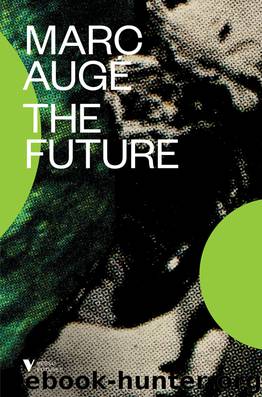The Future by Marc Auge

Author:Marc Auge
Language: eng
Format: epub
Publisher: Verso Books
Published: 2015-02-03T05:00:00+00:00
Chapter 6
Innovation
The idea of the model helps to give us a clearer conception of the difference between the action disciplines and the sciences. The models that emerged from nineteenth-century utopias had humanity as their object and were conceived by human brains. Once the model had been delineated it lost the character of a hypothesis – revisable by definition – and took on that of a guide to action. In other words, it lost any problematic dimension and came to be seen as a set of instructions for use, based on certainty: this was the difficulty faced, with belated and tragic common sense, by the hero of La Condition humaine as mentioned above.
Even when clearly separated from any ideological dimension, the social or human ‘sciences’ are not scientific in the same way as the so-called natural sciences, because they are focused on humanity itself: not the biological and material components of human beings, but human behaviour in its symbolic aspect, relations between the self and the self and between the self and others. Comparable measurement systems and, for example, the quantification of results play little or no part in them, and it is quite obvious that the discipline of economics falls into the social sciences category and is not one of the natural sciences, however ‘hard’ and formalized its investigative methods may be.
Since the social sciences were conceptualized by humans, they cannot exclude the reflexive dimension from their field of study. This is not to negate the tendential and ideal unity of all learning, nor to claim that the social sciences can only produce qualitative and relative results (quite the contrary); they are simply more exposed than the natural sciences (although those too are not completely exempt) to the risk of being taken over, or heavily influenced, by the forces whose interplay they study in the social field. Being part of that social field, they have more trouble than the natural sciences in adopting a viewpoint totally external to their object.
We are currently witnessing, with globalization and the extension of the capitalist market to the whole planet, a series of unprecedented convergences creating a radically new situation that the public only perceives in fragmentary fashion, owing to the speed with which it has appeared and the power of the language that presents it as self-evident, natural and indisputable. To characterize this situation briefly, I would say that we are no longer capable of addressing our relation to space and time – the basis of the symbolic activity that defines the essence of man and humanity – except by means of artefacts elaborated by industry and available on the market. It amounts to nothing less than a total disruption of any capacity human individuals may have to perceive their relation to themselves and others, a revolution apparently still in its first rumblings, but which could ultimately shift the parameters of what we still call human nature.
For the social sciences this situation represents a threat, an accomplishment and a challenge. A threat because
Download
This site does not store any files on its server. We only index and link to content provided by other sites. Please contact the content providers to delete copyright contents if any and email us, we'll remove relevant links or contents immediately.
| Anthropology | Archaeology |
| Philosophy | Politics & Government |
| Social Sciences | Sociology |
| Women's Studies |
Born to Run: by Christopher McDougall(7125)
The Leavers by Lisa Ko(6948)
iGen by Jean M. Twenge(5415)
Sapiens by Yuval Noah Harari(5369)
Spare by Prince Harry The Duke of Sussex(5195)
The Kite Runner by Khaled Hosseini(5178)
Machine Learning at Scale with H2O by Gregory Keys | David Whiting(4312)
Bullshit Jobs by David Graeber(4190)
Never by Ken Follett(3954)
Goodbye Paradise(3809)
Livewired by David Eagleman(3772)
Fairy Tale by Stephen King(3394)
A Dictionary of Sociology by Unknown(3085)
Harry Potter 4 - Harry Potter and The Goblet of Fire by J.K.Rowling(3073)
The Social Psychology of Inequality by Unknown(3029)
The Club by A.L. Brooks(2925)
Will by Will Smith(2919)
0041152001443424520 .pdf by Unknown(2845)
People of the Earth: An Introduction to World Prehistory by Dr. Brian Fagan & Nadia Durrani(2736)
